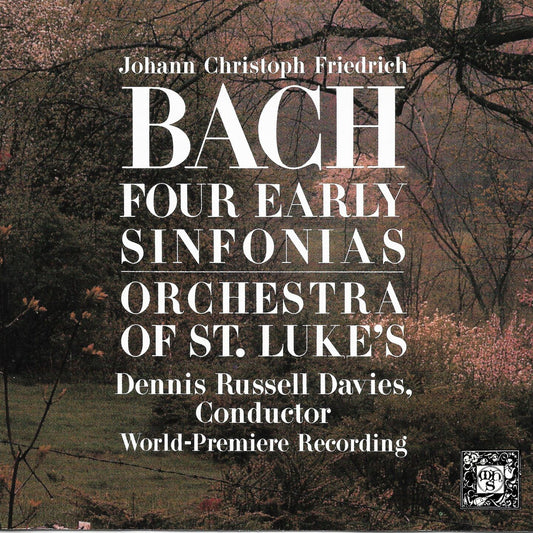Collection: JOHANN CHRISTOPH FREDERICH BACH (1732–1795)
Johann Christoph Friedrich Bach (1732–1795) was a German composer and harpsichordist, often referred to as the "Bückeburg Bach" due to his long tenure at the court of Bückeburg. He was the fifth son of Johann Sebastian Bach and inherited his father’s musical talent while developing a style that bridged the Baroque and Classical eras.
Born on June 21, 1732, in Leipzig, Germany, Johann Christoph Friedrich received his early musical education from his father and his cousin Johann Elias Bach. He attended St. Thomas School, where he was immersed in the rich musical traditions of his family. Though some sources suggest he may have studied law, there is no definitive record of this.
In 1750, shortly after his father’s death, Bach was appointed harpsichordist at the court of Count Wilhelm of Schaumburg-Lippe in Bückeburg. He later became concertmaster in 1759, composing symphonies, keyboard sonatas, oratorios, and chamber music. His works reflect a blend of Italian influences, due to the Count’s preference for Italian music, and the stylistic traits of his father and brother, Carl Philipp Emanuel Bach.
Bach collaborated with Johann Gottfried Herder, who provided texts for several of his vocal works. His compositions evolved over time, incorporating elements of the galant style and early Classical idioms, similar to Haydn and Mozart. Unfortunately, a significant portion of his works was lost during World War II.
Johann Christoph Friedrich Bach passed away on January 26, 1795, in Bückeburg, at the age of 62. His contributions to music, though sometimes overshadowed by his more famous relatives, remain an important link between the Baroque and Classical periods.




